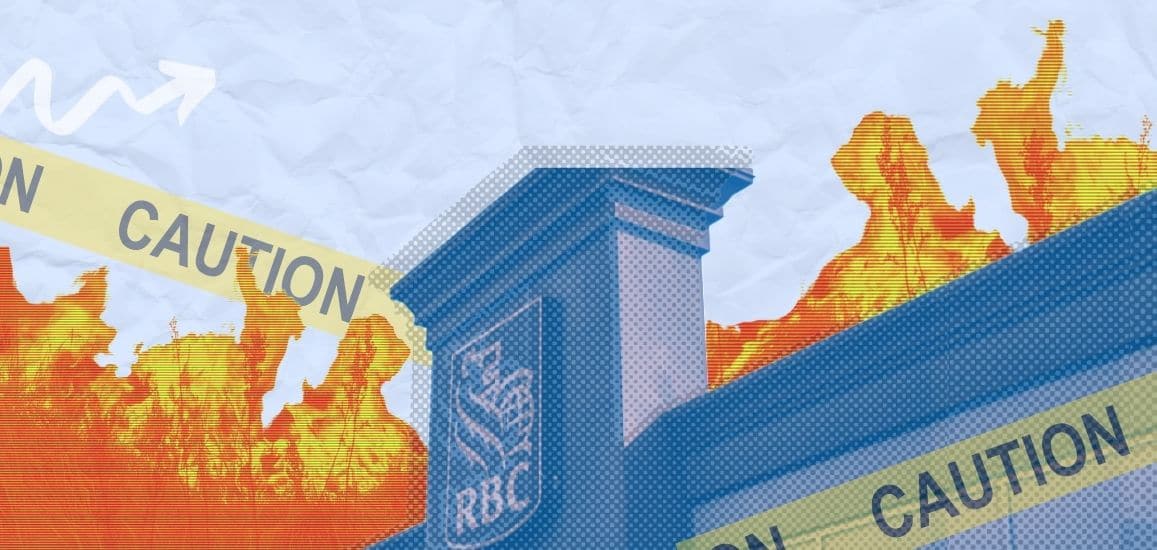Both RBC and HSBC under cloud of greenwashing investigations by regulatory bodies
OTTAWA/TRADITIONAL, UNCEDED TERRITORY OF THE ALGONQUIN ANISHNAABEG PEOPLE – Citing greenwashing and climate concerns, environmental law charity Ecojustice, representing Stand.earth, submitted a letter to Canadian Minister of Finance Chrystia Freeland opposing the Royal Bank of Canada (RBC)’s bid to purchase HSBC’s Canadian unit for CAD $13 billion, unless there are conditions to restrict greenwashing and manage climate change risks.
Copies have been sent to Canada’s Competition Bureau, a federal law enforcement agency, financial regulatory body the Office of the Superintendent of Financial Institutions (OSFI), two primary UK regulators, and the federal Minister of Environment and Climate Change Steven Guilbeault. The letter states:
“Unfortunately, neither RBC nor HSBC has a credible plan for addressing climate change (a major systemic financial risk) and the misleading nature of their public climate commitments contrasted with their fossil fuel financing brings the integrity of their operations into question. Misleading consumers and making false climate promises while financing the primary driver of climate change is not in the best interests of Canadians or the financial system.
“Canada needs all economic actors to align with the goal of limiting warming to 1.5°C to reduce climate risks to the financial system and meet Canada’s domestic and international climate commitments. Greenwashing undermines the actions of institutions who are legitimately committed to and aligned with achieving net zero.”
Canada’s Competition Bureau, a federal law enforcement agency, has officially launched an investigation into RBC’s alleged misleading climate advertising after six members of the public submitted a formal complaint. Similarly, in October the Advertising Standards Authority of the UK banned HSBC climate related ads, after concluding that they were misleading consumers.
Run by CEO Dave McKay, RBC is Canada’s top fossil fuel funding bank and the fifth worst funder of fossil fuels in the world to the tune of CAD $262 billion since the Paris Climate Agreement was signed in 2016. HSBC is the largest financier of oil and gas expansion in Europe and the 13th worst funder of fossil fuels in the world, with financing amounting to more than CAD $178.13 billion between 2016 and 2021.
RBC is financing fossil fuel expansion projects around the world, carbon bombs set to trigger catastrophic climate breakdown while trampling Indigenous and community rights. This includes the Coastal GasLink fracked gas pipeline on unceded Wet’suwet’en territory; the world’s largest proposed crude oil pipeline, the East African Crude Oil Pipeline (EACOP); and the Trans Mountain Tar Sands Expansion Project pipeline.
In October, an investigation by the BBC and the Bureau of Investigative Journalism found that billions of dollars HSBC earmarked for ‘sustainable’ finance ended up supporting oil rigs, tree-felling, and airport expansion.
Richard Brooks, Stand.earth Climate Finance Program Director, said:
“RBC and HSBC merging is a marriage made in climate hell and greenwashing heaven. RBC’s bid to buy HSBC Canada is bad for communities in Canada and around the world, and we urge regulators to seriously consider all implications, including on climate risk. Two climate laggards merging does not make a climate leader.”
Alan Andrews, Ecojustice Climate Program Director, said:
“Minister of Finance Chrystia Freeland must act to protect Canadians from the phony climate claims being peddled by these two banks – and the wider problem of greenwashing in the financial sector. This proposed merger highlights the urgent need for regulations to ensure our banks publish credible climate plans. Climate change is an existential threat to everyone; deception and delay by the big banks puts Canadians and our financial system at risk.”

